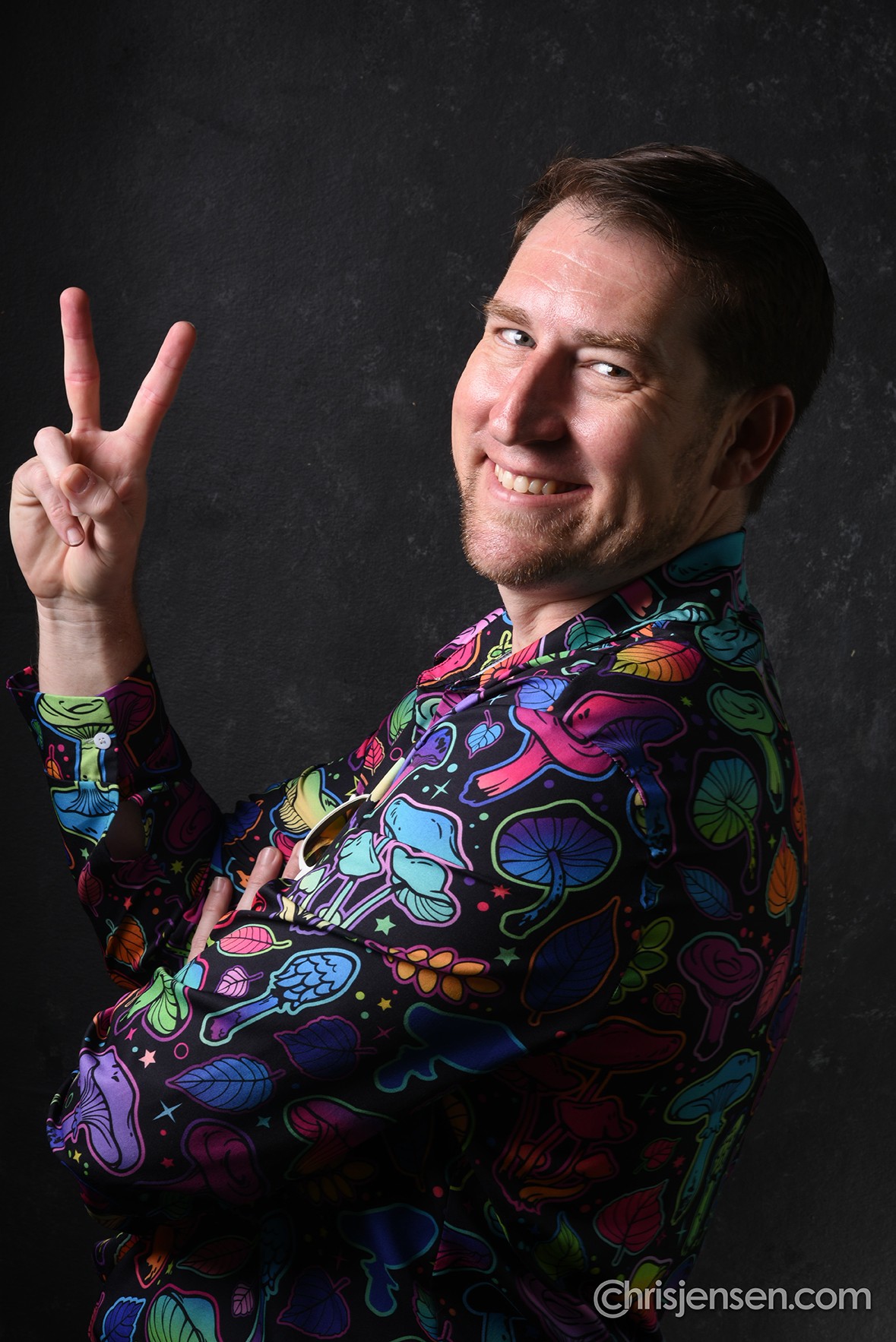We caught up with the brilliant and insightful Jacob Tell a few weeks ago and have shared our conversation below.
Jacob, looking forward to hearing all of your stories today. What was it like going from idea to execution? Can you share some of the backstory and some of the major steps or milestones?
The journey to launching District216, my psychedelic social club, began as a response to unexpected challenges and evolved into a mission of transformation. The pandemic forced my team at Oniracom and me to rethink everything. Our marketing agency, which had always been rooted in fostering deep connections between artists and audiences, found its physical headquarters suddenly empty. We pivoted, turning our space into LoDo Studios, a vibrant venue that hosted live-streams, photo shoots, and creative collaborations. This period of reinvention not only kept us afloat but also revealed the power of community in times of crisis. LoDo Studios became a hub where people could safely gather, creating fertile ground for the next chapter—District216. Inspired by my personal experiences with psychedelics and their ability to foster deep human connection, I knew this was the moment to create a space for advocacy, education, and shared growth.
District216 grew naturally out of my passion for consciousness expansion and my belief in the transformative potential of psychedelics. With LoDo Studios as our venue and Oniracom’s storytelling expertise, we created a symbiotic ecosystem where each venture supports the others. Weekly District House Events and quarterly Marquee gatherings bring people together for panel discussions, live music, films, and shared experiences that explore psychedelics’ role in mental health, spirituality, and creativity. The Montecito Journal captured our mission beautifully: “District216 is equal parts community gathering place, info hub, and advocacy group.” Together, these ventures form a bridge between art, business, and transformation, all rooted in the philosophy of “YES…AND.” From the pandemic’s challenges to the growing cultural embrace of psychedelics, my journey has been about turning obstacles into opportunities—and building a community that fosters the freedom to explore, connect, and dream.
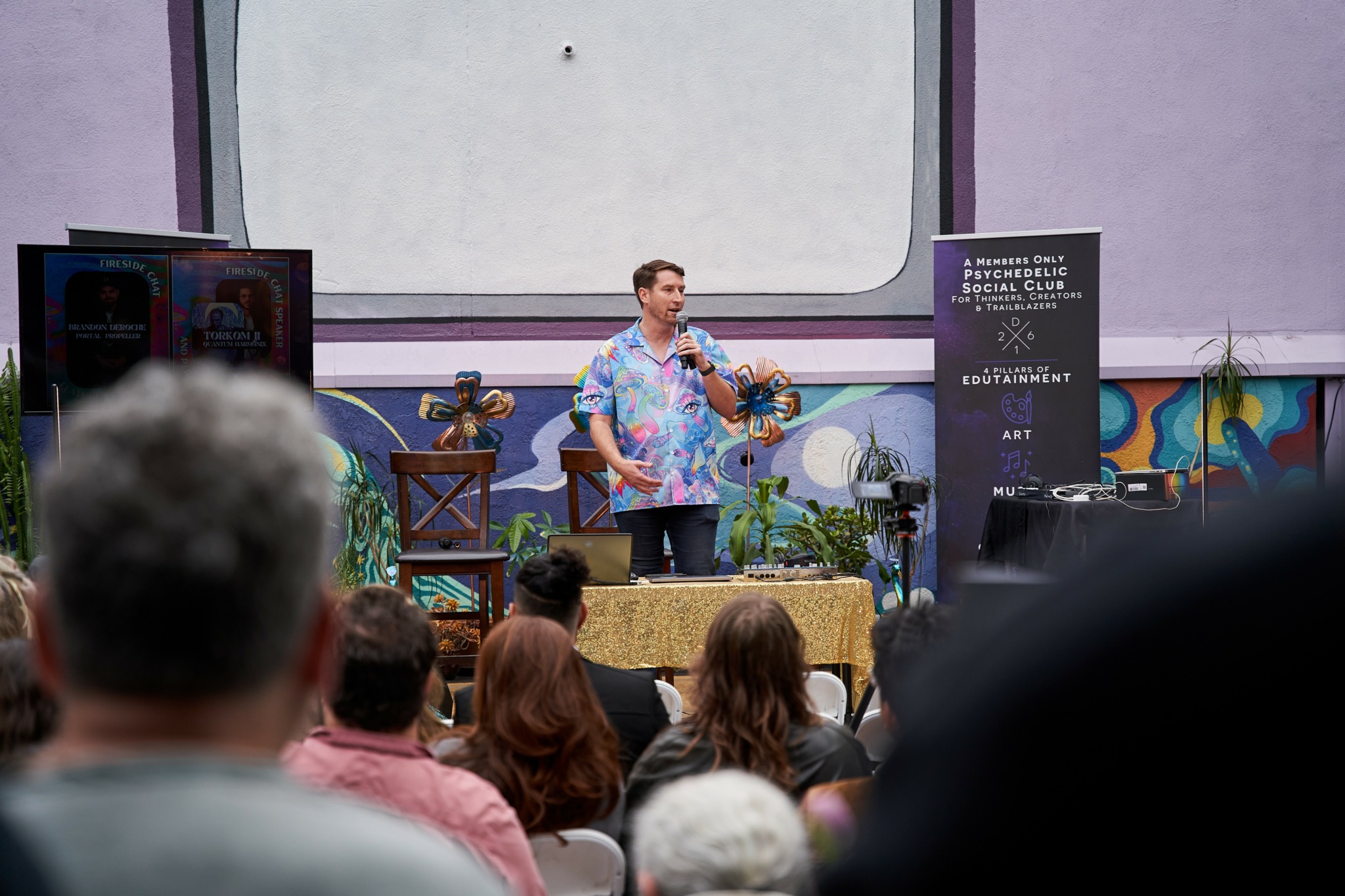
Jacob, before we move on to more of these sorts of questions, can you take some time to bring our readers up to speed on you and what you do?
I’ve always been driven by a passion for connection, creativity, and transformation, and my work reflects that. I wear multiple hats as the founder of three symbiotic ventures: District216, LoDo Studios, and Oniracom. Together, these brands form a unique ecosystem that combines marketing, creative production, and community-building with a focus on psychedelics and their transformative potential.
How I Got Here
My journey began with Oniracom, the marketing agency I co-founded in 2001 to help artists connect with their audiences. Music has always been a profound source of inspiration for me, and through Oniracom, we’ve worked with major artists, record labels, and brands to create immersive storytelling and digital strategies. Over the years, we’ve expanded to work across industries, but our core mission remains the same: to create meaningful connections.
When the pandemic hit, Oniracom’s beautifully designed headquarters in Santa Barbara—built to foster creativity—had to adapt. We turned the space into LoDo Studios, a vibrant venue for live streams, video shoots, and creative events. This pivot not only allowed us to stay afloat during a challenging time but also laid the groundwork for my next big idea: District216, a psychedelic social club that combines community, education, and advocacy.
District216: The Heart of My Work
District216 is where my personal passion and professional expertise truly intersect. Psychedelics have played a transformative role in my life, opening my eyes to new ways of thinking, connecting, and creating. With District216, I wanted to normalize and advocate for safe, legal access to these powerful tools while building a supportive community for like-minded individuals. Our weekly District House Events and quarterly Marquee gatherings offer a mix of panel discussions, films, live music, and networking, all designed to foster authentic connections and spark meaningful conversations about the future of psychedelics in society.
What Sets Us Apart
What makes these ventures unique is how they complement one another. Oniracom’s storytelling and marketing expertise power District216’s outreach and educational initiatives. LoDo Studios provides a physical space where creativity and community converge. Together, these three entities create a feedback loop that amplifies our impact. Whether we’re helping brands share their story, hosting a transformational event, or fostering dialogue around psychedelics, everything we do is rooted in the same ethos: building authentic connections that inspire change.
What I’m Most Proud Of
I’m incredibly proud of the community we’ve built at District216. Seeing people come together—whether it’s to discuss the latest research on psychedelics, share their personal journeys, or simply connect with others who share their values—is deeply fulfilling. I’m also proud of the way we turned the challenges of the pandemic into an opportunity to innovate and grow. The Montecito Journal recently described District216 as “equal parts community gathering place, info hub, and advocacy group,” and that’s exactly what I envisioned.
What I Want People to Know
At its core, my work is about transformation—whether it’s helping brands connect with their audiences, providing a space for creative expression, or advocating for the safe and legal use of psychedelics. I want people to know that District216 isn’t just a social club; it’s a movement. We’re here to educate, to advocate, and to create a community where people feel empowered to explore their full potential. My philosophy in business and life is “YES…AND,” a nod to the power of possibility, collaboration, and evolution.
If you’re looking for a partner to help you tell your story, a space to create something extraordinary, or a community that’s redefining what’s possible, I invite you to connect with me through Oniracom, LoDo Studios, or District216. Together, we can turn ideas into impact.
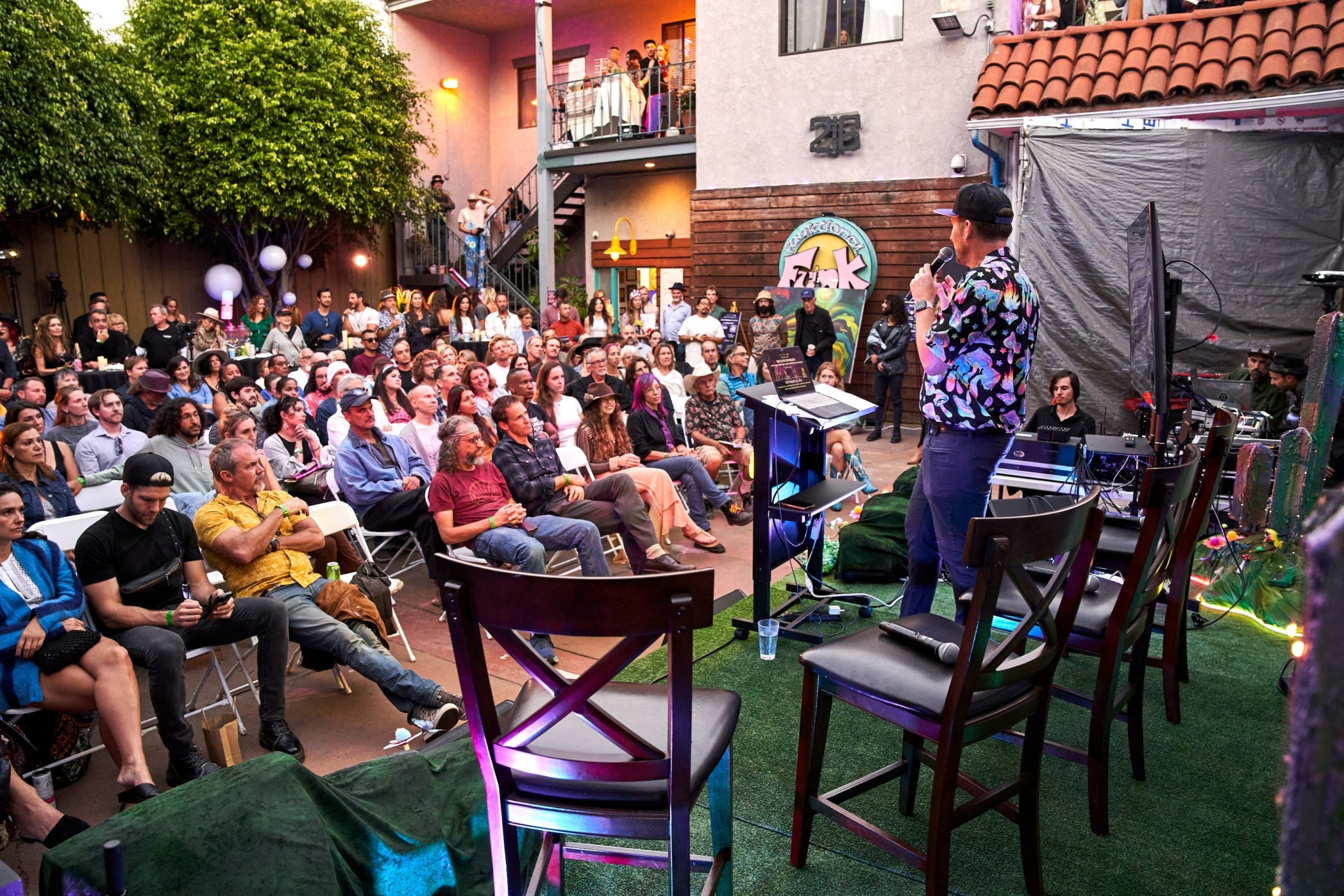
How about pivoting – can you share the story of a time you’ve had to pivot?
Around 2013, the rise of Spotify and streaming services completely disrupted the music industry—and, by extension, Oniracom. Since 2001, we had been 100% focused on the music industry, deeply ingrained as a go-to agency for digital marketing services for major record labels and music marketing platforms. We thrived by helping labels connect artists with fans through digital ecosystems that centered around physical products like vinyl, CDs, and MP3s. But as streaming became the dominant model, those traditional revenue streams for record labels began to evaporate, and budgets for marketing agencies like ours quickly followed suit.
This seismic shift forced us to reevaluate everything. We had to diversify our client base and expand beyond the music industry to survive. It was a challenging but transformative period for Oniracom. We began working with local Santa Barbara nonprofits, lifestyle brands, and businesses outside the music world. What started as a necessity evolved into an opportunity to apply our expertise in storytelling, fan engagement, and digital strategy to new industries.
This pivot not only saved Oniracom but also made us a stronger and more resilient agency. By broadening our focus, we were able to refine our creative process and deliver even greater value to a wider range of clients. Today, we continue to work with artists and record labels, but our portfolio now includes lifestyle brands, nonprofits, and even cannabis companies. Looking back, that period of disruption was a turning point that redefined who we are and what we’re capable of. It was proof that adaptability and a willingness to take risks can turn challenges into opportunities for growth.
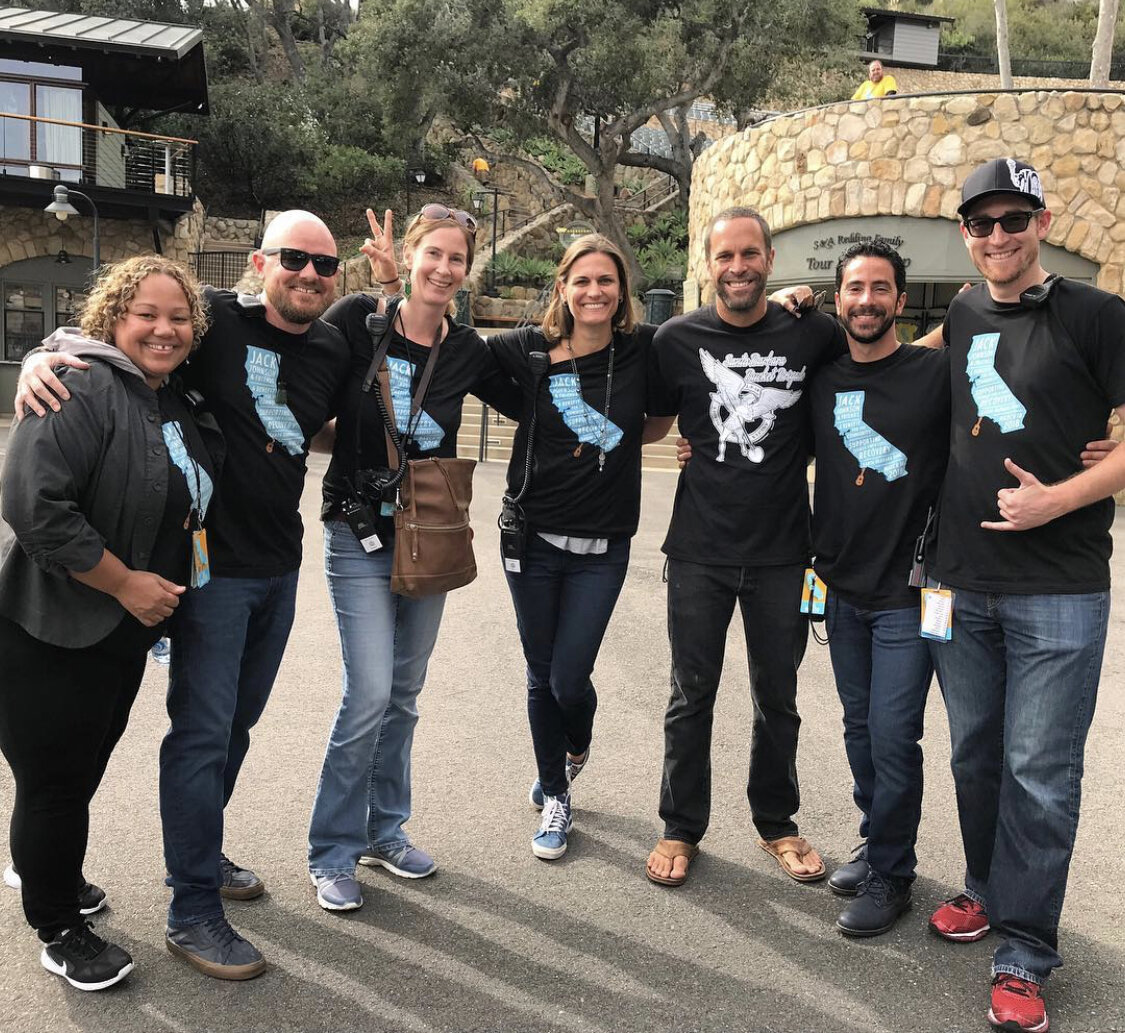
Can you share one of your favorite marketing or sales stories?
One of my favorite marketing stories comes from a time when I took a real leap of faith in my role as merchandise manager for Jack Johnson’s tour, which Oniracom was deeply involved with.
In the mid-2000s, we had been working closely with major music acts and their teams to create digital experiences, manage fan engagement, and run online stores. But Jack’s team presented a unique challenge that really pushed me to think outside the box.
Jack Johnson, as many know, is a laid-back, eco-conscious artist with a strong environmental message, and his fan base follows suit—loyal, passionate, and increasingly interested in sustainability. So, when the opportunity arose to manage the merchandise for his tour, I jumped in, knowing the responsibility wasn’t just about selling t-shirts, hats, or other typical concert swag. It was about representing Jack’s values and connecting deeply with his fan base.
Here’s where it got interesting: at that point, the tour’s merchandise had become a bit predictable. Traditional tour merch wasn’t selling as well, and the challenge was how to revamp and market it in a way that resonated with the audience. I needed to figure out how to make our offerings unique—something that felt as much like an experience as the concert itself.
I knew the odds were stacked against us because Jack’s fans weren’t the type to buy generic tour t-shirts just because they were there. They wanted something meaningful, something that aligned with the artist’s message of sustainability. At the time, most of the merchandise on the market was either cheap, mass-produced, or lacked authenticity. I had a hunch we could do better, but it would require a shift in how we thought about what merchandise could really be.
We took a risk and decided to invest in eco-friendly, sustainable materials for the merch. We worked with artists to design limited edition, handmade items, and even collaborated on creating reusable bags made from organic cotton and recycled materials. I pushed for everything to align with Jack’s core values, even down to the packaging. It wasn’t just about selling merch—it was about selling an experience that reflected the message of the tour.
The strategy was risky because it required more investment upfront, and there was a chance that people wouldn’t bite. But the response was overwhelming. Fans loved the authentic, eco-conscious offerings, and the sales soared. We turned what could have been a typical tour merchandise setup into something that told a story—Jack’s story—and that resonated deeply with the fans.
Looking back, it was one of those moments when I felt like I was stepping out on a ledge. The odds weren’t in our favor—traditional tour merch was reliable and easy. But taking a risk on sustainability and meaningful merchandise not only paid off financially, it also helped solidify Jack Johnson’s brand as one of the most socially-conscious artists of his time.
That experience reinforced something that I carry with me to this day: when you understand your audience, when you know their values, and when you take a risk that aligns with those values, you can turn an average marketing or sales situation into something truly memorable. It’s about going beyond the transaction and creating an experience that people want to be a part of.
Contact Info:
- Website: https://jacobtell.com
- Instagram: http://instagram.com/jacobtell
- Facebook: https://www.facebook.com/traderjoes/
- Linkedin: https://www.linkedin.com/in/jacobtell/
- Twitter: https://x.com/jacobtell
- Youtube: https://www.youtube.com/@jacobtell
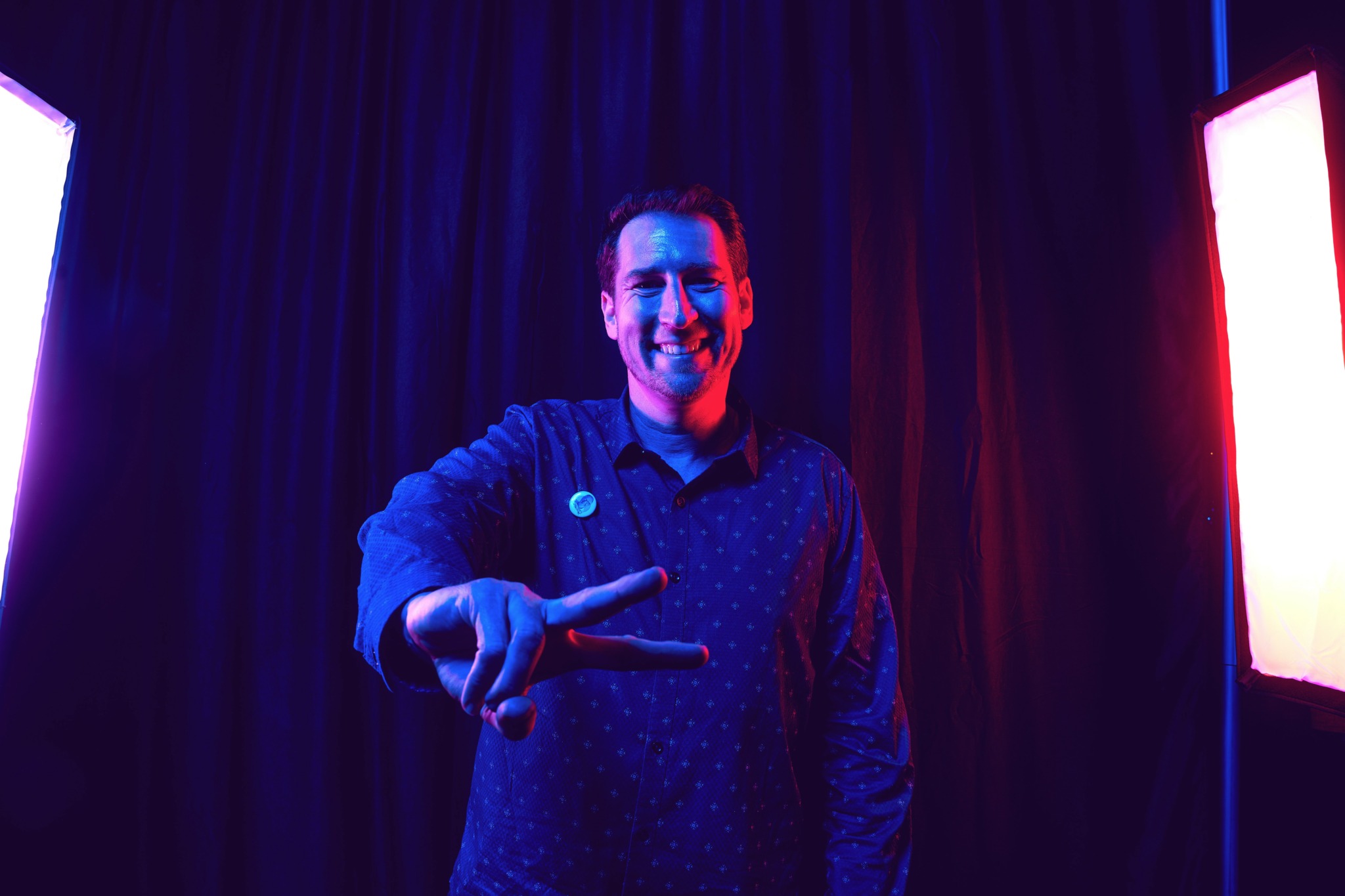
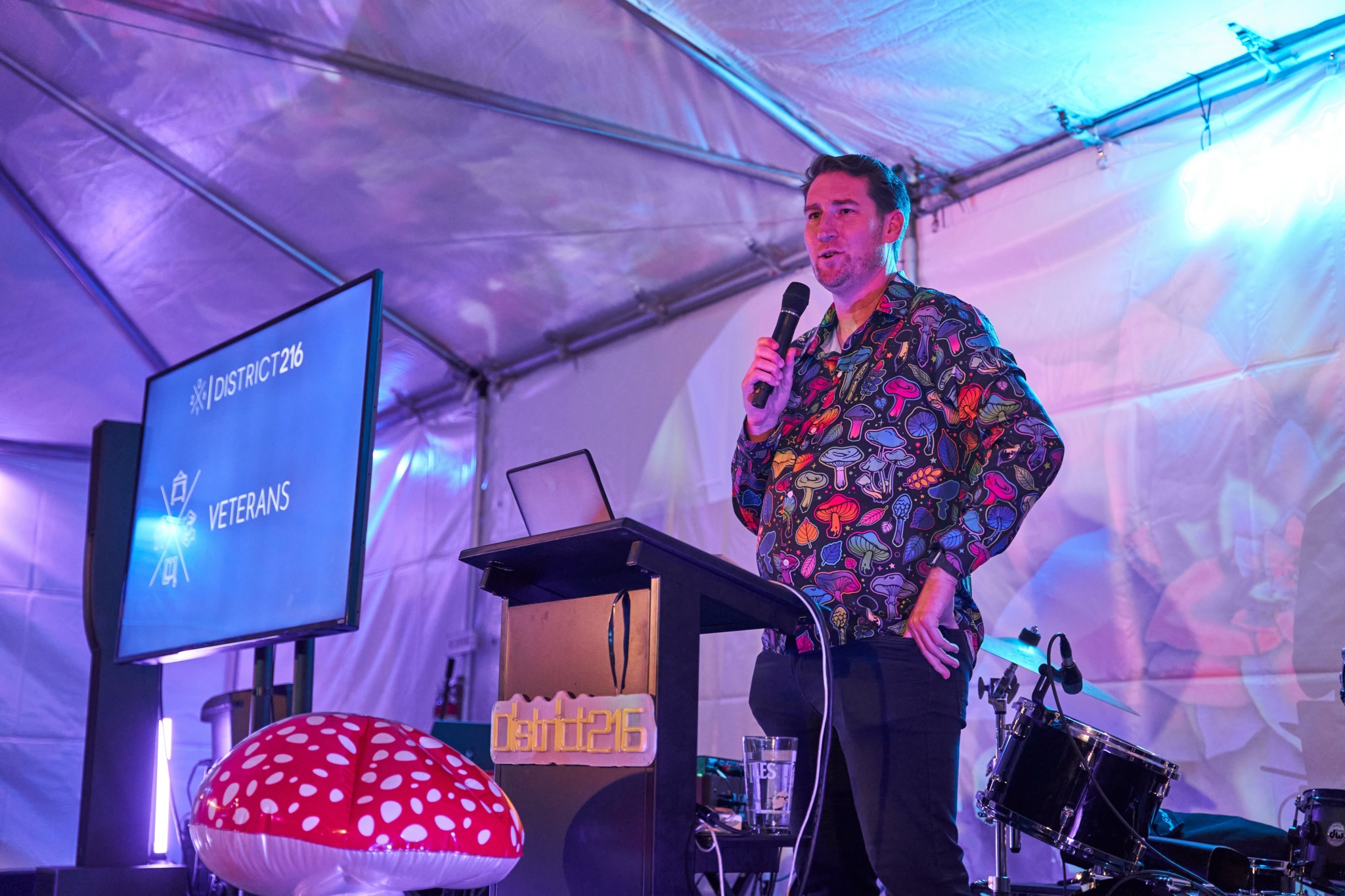
Image Credits
Photos by Stephen Lewis


